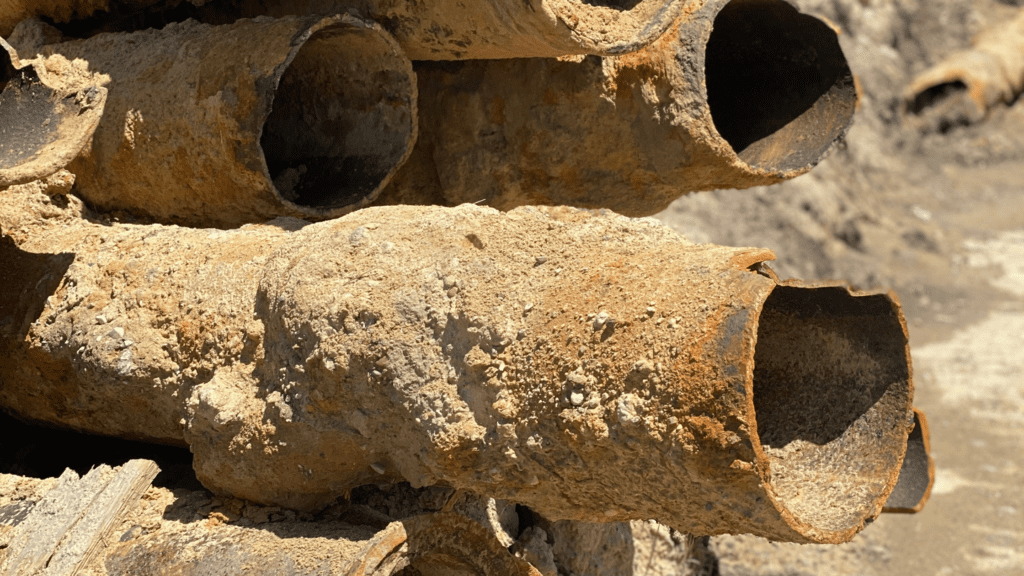So, you have already checked your whole home for pipes that could be a source of lead. Any pipes that could cause concern have been replaced. However, you are still worried about lead getting into your drinking water from the community’s water pipeline. This is a concern that some do not stop thinking about – but you really should, too, as your pipes could still cause issues if not researched properly, and water line replacement could be necessary.
Local Government
One of the best places to start your research process is your local government or water companies. They will know if the main water lines in your area have been upgraded from previous lead systems. The tubes should be made out of either ductile (cast) iron or PVC. If not, the possibility of them shedding lead into your system is much higher.
If your local government has changed out the pipe system recently, you will still need to check and see if they have also changed out the goosenecks that are connecting the water service lines, including the one that goes into your home, to the municipal water mains. If this has not been done, the water that enters your home may contain lead.
You are responsible for your private service line from your home out to your property line. Beyond your property line is the community’s public service line. If their portion of the service line has not been changed, you could have a problem with lead. The pipes and goosenecks need to be newer than the 1960s for them to be considered safe. If the pipes were installed before the 1960s, you still have the possibility of lead entering your plumbing system.
Checking the System Yourself
There should be a stop valve outside your property where your main water valve is located. You will need to open the lid over the pipe and look at what type of piping there is. If you feel that you are not able to do this on your own, you should get a professional to examine it for you.
You can test the pipes by placing a heavy-duty magnet up against them, as this will help you determine the metal content. The three types that it can be are:
- Copper – This looks like a copper penny, and the magnet will not stick to it.
- Cast Iron – This will look black, and the magnet will stick to it.
- Plastic or PVC – The colors of this should either be white or ivory, and the magnet will not stick to it.
Knowing the Facts
If you are at all in doubt, it is always best to hire a qualified company to check out the system and check for any lead traces coming into your residence. The government requires the public water systems to be checked periodically for the presence of lead. The only exception to this is water suppliers, as they are not under the same regulations. If your water system is being supplied by a water company, you will want to have your water tested to determine what the levels are so that you can then have a baseline in which to recheck every so often.
Lead can leach into your water system from old lead pipes that are corroded naturally by the water that is running through them. Once the corrosion has started, the lead particles then flow towards your home. But as stated before, the government has set into place some guidelines to be followed to help prevent such occurrences. Sometimes, though, processes may fail, like in the case of Flint Michigan. In that case, the lead came from the water source that was used to provide water to the community, and not the pipes themselves.
Lead can also be present in reservoirs or rivers, but the levels are not usually dangerous. There are also some treatments that are typically used to prevent pipe corrosion so that there will be less of a chance of being exposed to this harmful element.
Some of the effects of lead poisoning are delayed mental development, kidney damage, lead stored within the bones, diminished hemoglobin, limited liver function, and reproductive issues.
If you have already done all that you can do on your property, it is then left to your local government and water supplier to ensure that your water supply is safe for you and your community. This is a severe problem that can be taken care of, but it has to be a collective effort!

